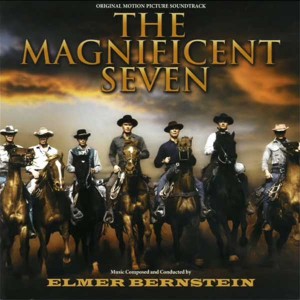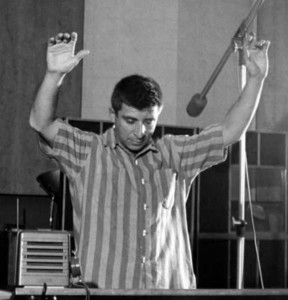 Following James Horner’s tragic and untimely death in a plane crash on June 22, it was believed his last contributions onscreen would be Antoine Fuqua’s boxing drama Southpaw, released in July, and Patricia Riggen’s Chilean miner drama The 33, due in November. But recently, it came to light that Horner had also been working on Fuqua’s remake of The Magnificent Seven, scheduled for Christmas 2016, from MGM.
Following James Horner’s tragic and untimely death in a plane crash on June 22, it was believed his last contributions onscreen would be Antoine Fuqua’s boxing drama Southpaw, released in July, and Patricia Riggen’s Chilean miner drama The 33, due in November. But recently, it came to light that Horner had also been working on Fuqua’s remake of The Magnificent Seven, scheduled for Christmas 2016, from MGM.
Horner was the composer of record on Fuqua’s Magnificent remake, and the director did a smash drop on the film community, promoting Southpaw on July 17, when he revealed in an NPR interview with Audie Cornish that before he died Horner had worked out nearly the entire score for the film. “I just found out a few days ago – his team flew out here, to Baton Rouge, and they brought me all the music for The Magnificent Seven,” Fuqua told Cornish, sounding as surprised as anyone. “He already wrote it for me based on the script. He did it all off the script because he wanted to surprise me. I thought it was a gift or something. And they all came out here and said, ‘Antoine, James wrote the music for Magnificent Seven already and it’s just glorious.’ So that’s my memory of James.”
The news is particularly significant in that the 1960 English-language version (itself a remake of Akira Kurosawa’s 1954 Japanese film, The Seven Samurai, from Kurosawa’s original script) is absolutely revered by film music aficionados (and beloved to casual movie fans, too) for Elmer Bernstein’s Copelandesque score. Lake Forest College Department of Music Chair Donald Meyer makes a quite convincing case as to why Bernstein’s score is the greatest Western score of all time (and quotes director Lawrence Kasdan saying so). 
Fuqua recalled for Cornish the initial musical discussion. “He called me on a Saturday, after he watched the movie, and I said I don’t have any money because it wasn’t a big budget movie. And he said to me, ‘I love the movie. I love the father-daughter relationship. Don’t worry about the money. I’m just going to do it.’” There has been some speculation that since Horner composed based on the script, it might be challenging to conform his vision to actual cut footage. However, as another Horner collaborator, James Cameron, succinctly put it: “stories need memorable themes. ” It’s all about melody that can be hummed. Crack the melody and it doesn’t matter whether you play it on a solo piano or have a full orchestra behind you. Editing details aside, Horner undoubtedly worked out the main themes for the film, and it is unimaginable that his efforts don’t meet or exceed Fuqua’s expectations.
So while another tunesmith will have to be brought in to smooth things over and fill in the gaps, it’s safe to say we’ll be hearing James Horner’s composition work on Fuqua’s Magnificent Seven. Musicologists can safely move on to speculation as to whether Horner also had some themes up his sleeve for Cameron’s Avatar 2.



Comments are closed.